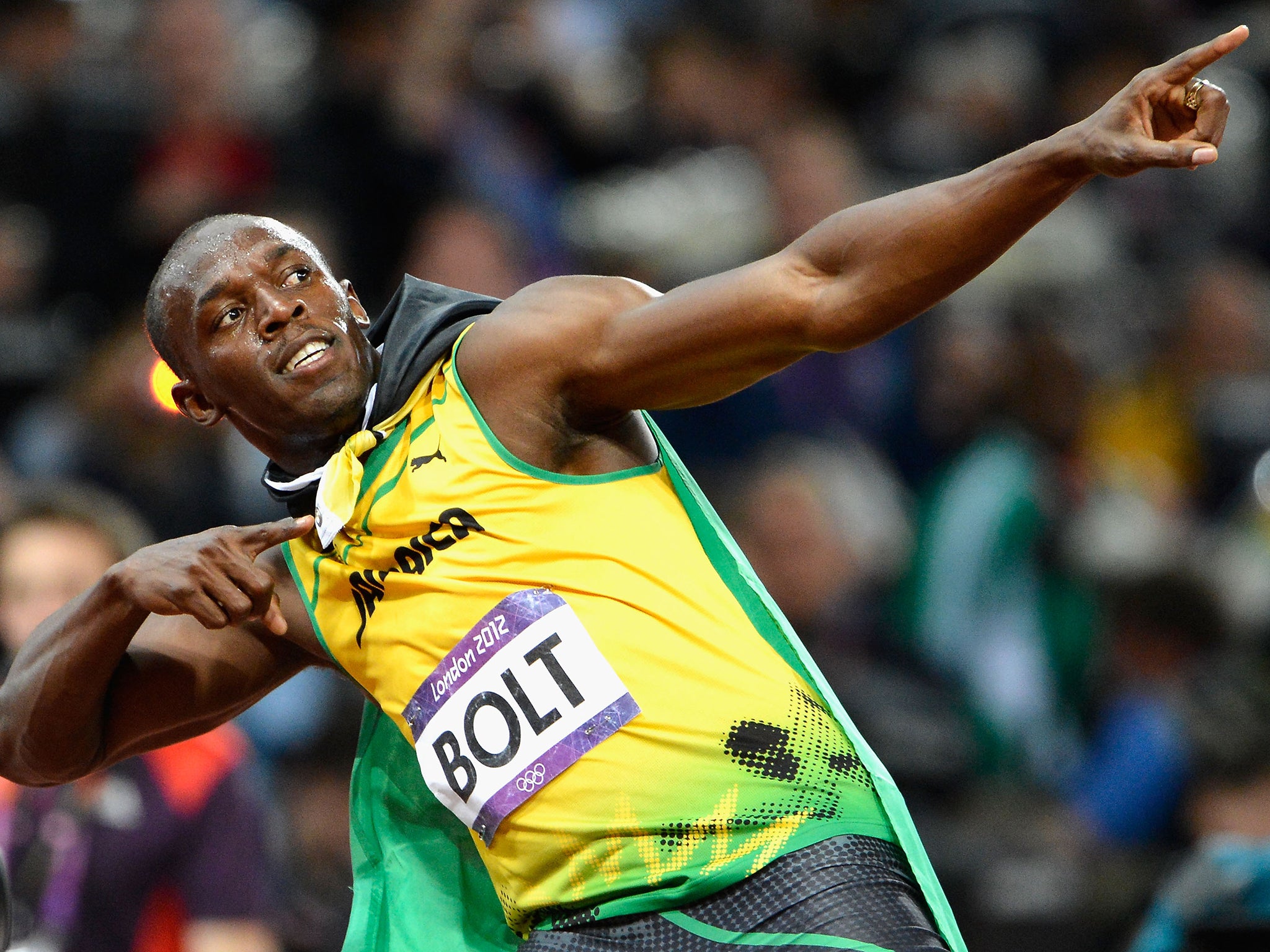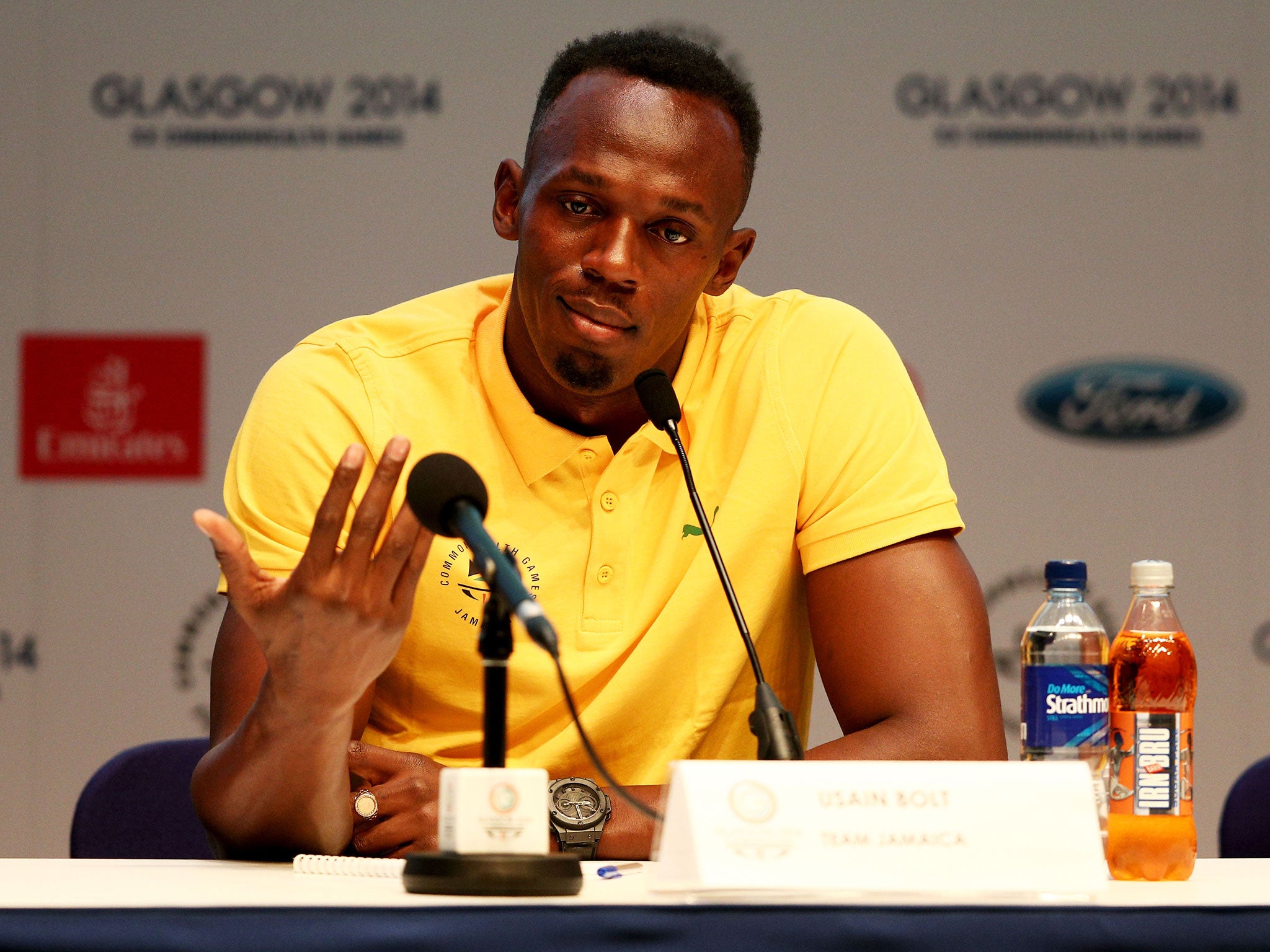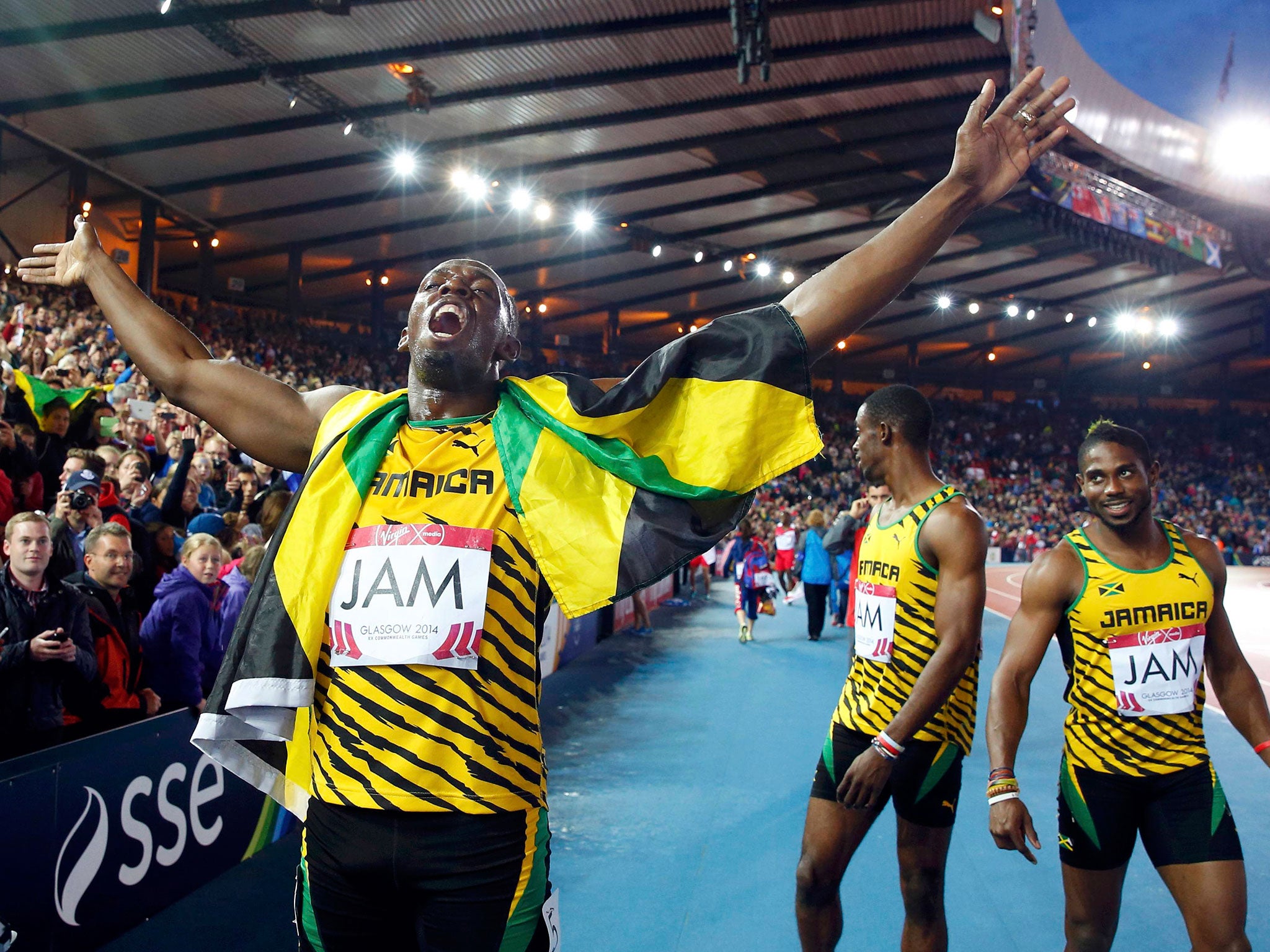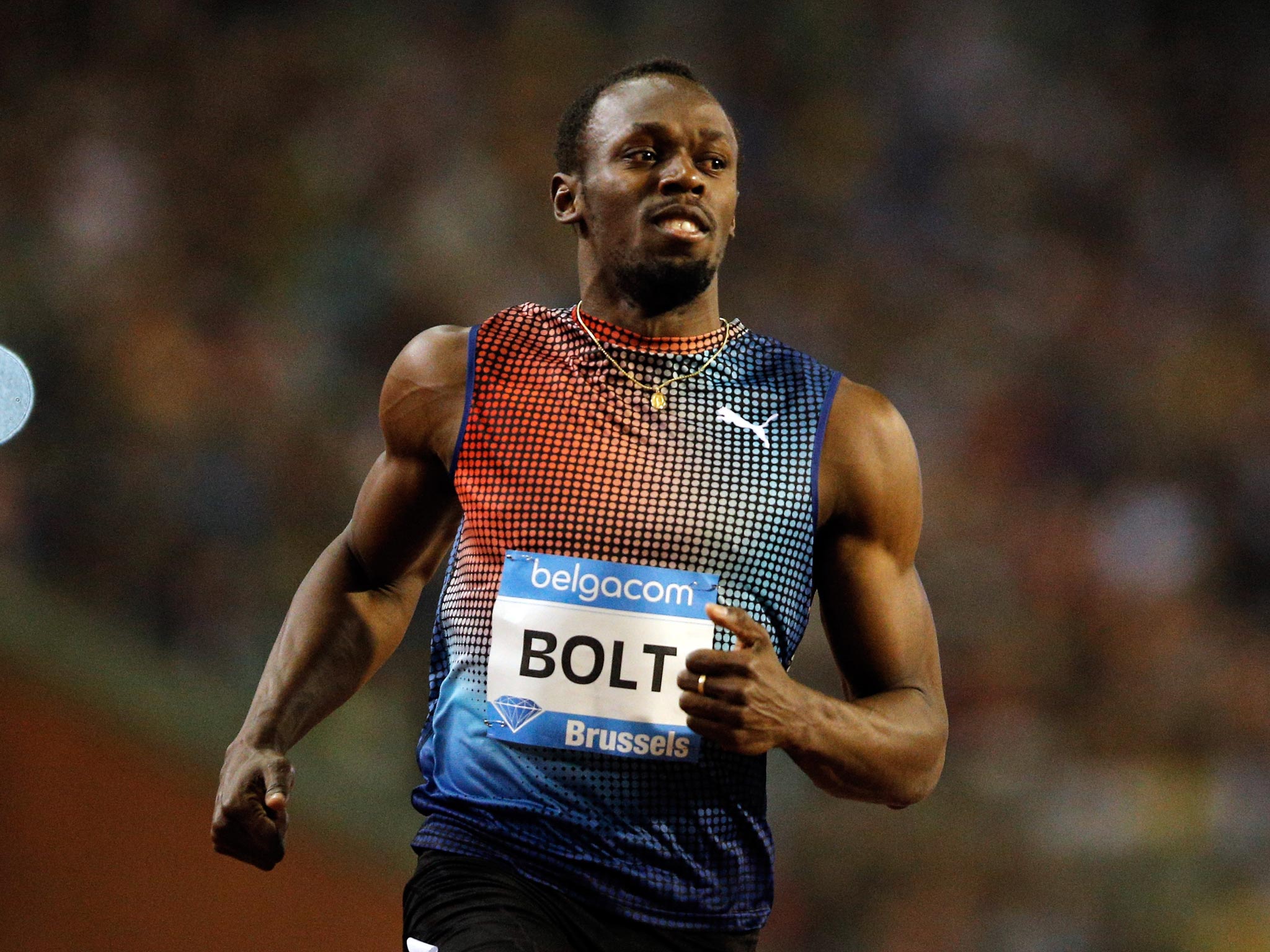The Bolt Supremacy: Inside Jamaica's Sprint Factory by Richard Moore - book review: How a Caribbean island rules the world of sprinting
Chris Maume looks at a thorough investigation that reveals many reasons for Jamaica’s sprint prowess – beyond the 'D word'

Your support helps us to tell the story
From reproductive rights to climate change to Big Tech, The Independent is on the ground when the story is developing. Whether it's investigating the financials of Elon Musk's pro-Trump PAC or producing our latest documentary, 'The A Word', which shines a light on the American women fighting for reproductive rights, we know how important it is to parse out the facts from the messaging.
At such a critical moment in US history, we need reporters on the ground. Your donation allows us to keep sending journalists to speak to both sides of the story.
The Independent is trusted by Americans across the entire political spectrum. And unlike many other quality news outlets, we choose not to lock Americans out of our reporting and analysis with paywalls. We believe quality journalism should be available to everyone, paid for by those who can afford it.
Your support makes all the difference.Jamaica’s national athletics championships is like a pop festival, with stalls, festivities and ticket touts outside the stadium and a carnival atmosphere inside it. The competitors are household names and it’s live on television. It’s one of the biggest events in the island’s calendar.
There has never been drug testing – though this isn’t grown-ups we’re talking about. This is the Jamaican national schools championships, or “the Champs”, an annual shindig that matches in importance and intensity anything that American college sport has to offer. Win at the Champs and you’re an instant national hero upon whose shoulders public expectation of even greater things soon settles.
For the past decade Jamaica has reigned supreme in sprinting – at every level, male and female, from the juniors to the Olympics. And as with most cases of overwhelming sporting dominance, eyebrows tend to be raised, awkward questions swatted aside at testy press conferences.
When Usain Bolt sprinted on to the world stage, the suspicions of more cynical observers were immediately aroused. But as the six-time Olympic champion has pointed out, he’s been tested hundreds of times and not once has there been a positive result. There are many possible factors that make him the fastest man in the world, but no one can imply his performances are chemically enhanced without attracting the attention of the libel lawyers.

That’s not the case for many of his colleagues, however. Since the Beijing Olympics in 2008 more than 20 Jamaican runners have tested positive, including Bolt’s training partner Yohan “The Beast” Blake, another gold medallist at the Olympics and World Championships, and Shelly-Ann Fraser-Pryce, double Olympic 100 metres champion.
So in his investigation into what makes the Jamaicans go so fast, Richard Moore would be entitled to wonder aloud if it’s not simply because they’re all drugged up to their eyeballs. It’s not “simply” because of anything, of course, and Moore explores a range of reasons why Bolt reigns supreme with his team-mates not far behind.
Is it their African heritage? If so, why aren’t there more top African sprinters? There is a sprinting gene, ACTN3, which boosts the development of the fast-twitch muscle fibres essential to running at speed. But as Moore points out, although 70 per cent of Jamaicans have it, 70 per cent of Jamaicans are not world-class sprinters. You’re highly unlikely to reach a sprint final without ACTN3, but it’s no guarantee of success.
Then there’s the yam factor. Part of Jamaica’s staple diet, yams have a chemical structure that’s identical to testosterone, and were used to make the first synthetic testosterone in the 1930s. That line of thought might hold good for many Jamaican athletes, but the island’s former prime minister, PJ Patterson, advances the theory to Moore and then admits, sadly: “I’m not sure Usain Bolt likes yams, though.”
What about slavery? One in four of those transported from Africa died on the way over, so perhaps those who made it to the Caribbean were physically tougher. In fact there’s no evidence to support any such theory, and Moore suggests that the very diversity of Jamaica’s gene pool – African, Spanish, British, Indian, Chinese, Syrian, Lebanese and many other populations figure – may carry more weight.
There’s the 10,000-hour theory. Like most of his colleagues, Bolt has been taking part in organised running since he was eight or nine, and like nearly every Jamaican athlete of note, he made his first waves at the Champs. And he’s grown up in a culture that thrives on competition.

It’s not just the Champs that are ferociously contested. Jamaica has a history replete with rivalries – note the sound systems of the 1950s and 1960s, competing with each other to play the best and loudest ska, rocksteady and reggae. In modern Jamaican athletics, two clubs dominate, Racers and MVP (Maximising Velocity and Power); their rivalry is bitter and rancorous, but clearly not counter-productive to the general health of Jamaican sprinting.
The island’s education system has its part to play: the most productive schools athletically are sponsored (one of the most successful, Calabar, by Puma, for example). And each school coach must be fully qualified. Fraser-Pryce (whose positive test, she insists, came after she carelessly took painkillers without finding out exactly what was in them) talks about Jamaica’s “virtuous circle”: the youngsters are not only inspired from afar by their elders’ successes , they train with them, too, and are duly motivated to become world-beaters themselves.
But for all these factors – and it seems obvious that they all play a part in making Jamaicans global sprint kings and queens – in the end, the mind turns back to doping. This is inevitable given the absolute shambles that was the island’s testing system. The official approach was haphazard and chaotic, either wilfully or due to plain incompetence, with no strict systems in place for out-of-competition testing – or even for the taking and storing of samples. In 2013 the entire committee of the Jamaica Anti-Doping Commission stood down following revelations of severe failings.

Moore talks to one tester, Paul Wright, who undertook a virtual one-man mission to get the system sorted out. One night he went home and discovered that his living-room light bulb had been removed, a known tactic of intimidation. “I got the message, I got the message,” he says.
Moore’s manful attempts to uncover any systematic doping in Jamaica have one big problem: nobody’s talking. There are plenty of seemingly authoritative assertions from the likes of such reformed dopers as Victor Conte, who ran the vast Balco doping operation in the US. But there’s nothing from anyone with an inside track. And as Moore writes, “into the vacuum of knowledge, speculation floods”.
What’s clear from his assiduous, highly readable investigation into why Jamaicans run so fast is that a whole range of factors come into play: the competitive culture, the drive to escape poverty, the genes, the “virtuous circle”, the yams – and, yes, the drugs.
There are, however, no shocking revelations of some vast, East-German-style doping programme (maybe, in years to come, the penitent might confess past offences and implicate others). Yet while The Bolt Supremacy contains nothing sensational in the pharmacy department, it remains a fascinating account of how a Caribbean island came to rule the world in the art and science of running very fast indeed.
Join our commenting forum
Join thought-provoking conversations, follow other Independent readers and see their replies
Comments